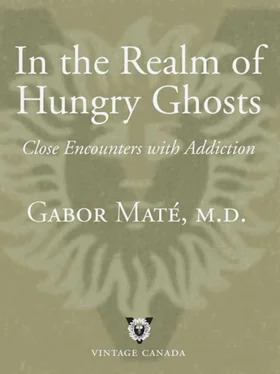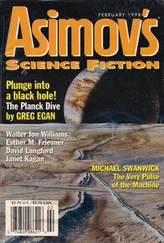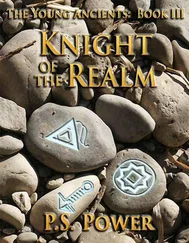The criminality associated with addiction follows directly from the need to raise money to purchase drugs at prices that are artificially inflated owing to their illegality. The addict shoplifts, steals and robs because it’s the only way she can obtain the funds to pay the dealer. History has demonstrated many times over that people will transgress laws and resist coercion when it comes to struggling for their basic needs—or what they perceive as such. Sam Sullivan, Vancouver’s quadriplegic mayor, told a conference on drug addiction once that if wheelchairs were illegal, he would do anything to get one, no matter what laws he had to break. It was an apt comparison: the hardcore addict feels equally handicapped without his substances. As we have seen, many addicts who deal in drugs do so exclusively to finance their habit. There is no profit in it for them.
As with petty drug pushing, so with prostitution. As this book is being completed, the disturbing details of the serial murder case against pig farmer Robert Pickton are emerging in a British Columbia courtroom. If convicted, Pickton will be counted among the most prolific and most sadistic killers of women in North American history. I believe that as a society we are unwitting accomplices in the deaths of the Downtown Eastside women who allegedly became Pickton’s victims because our criminalization of drug use drove those women into prostitution and into the underground street life that led to their deaths. If an evidence-based policy had been in operation in this country, these dozens of women—and their many counterparts elsewhere—might still be alive.
Society would have much to gain from decriminalization. On the immediate practical level, we would feel safer in our homes and on our streets and much less concerned about the danger of our cars being burgled. In cities like Vancouver such crimes are often committed for the sake of obtaining drug money. More significantly perhaps, by exorcising this menacing devil of our own creation, we would automatically give up a lot of unnecessary fear. We could all breathe more freely.
Many addicts could work at productive jobs if the imperative of seeking illegal drugs did not keep them constantly on the street. It’s interesting to learn that before the War on Drugs mentality took hold in the early twentieth century, a prominent individual such as Dr. William Stewart Halsted, a pioneer of modern surgical practice, was an opiate addict for over forty years. During those decades he did stellar and innovative work at Johns Hopkins University, where he was one of the four founding physicians. He was the first, for example, to insist that members of his surgical team wear rubber gloves—a major advance in eradicating post-operative infections. Throughout his career, however, he never got by with less than 180 milligrams of morphine a day. “On this,” said his colleague, the world-renowned Canadian physician Sir William Osler, “he could do his work comfortably and maintain his excellent vigor.” As noted at the Common Sense for Drug Policy website:
Halsted’s story is revealing not only because it shows that with a morphine addiction the proper maintenance dose can be productive. It also illustrates the incredible power of the drug in question. Here was a man with almost unlimited resources—moral, physical, financial, medical—who tried everything he could think of and he was hooked until the day he died. Today we would send a man like that to prison. Instead he became the father of modern surgery. 7
Most hardcore addicts could not function at such a high level, given the social and psychological adversity of their life histories. But surely, if their substance needs were met, they would have much greater opportunity to realize their potential to be creative and contributing members of society. At the very least, they would be a lesser burden. Decriminalization of drug use would establish the possibility of integrating addicts into the larger community, an essential step if they are to be rehabilitated in any large numbers.

In Chapter 1 I introduced Stan, a Native Canadian man, an addict and street dweller just out of jail. On chilly nights Stan should not be sleeping on stone steps under an archway in the Downtown Eastside. Without having to steal to support his drug habit, he would not have lived in prison the past eighteen months but in a recovery home or, if still needing to use, in a decent housing facility. He ought to be receiving remedial training for his learning disabilities and counselling to help him overcome the emotional defensiveness and impulsive reactivity that has so often landed him in trouble. Such support would help prepare him to join normal society.
Seeking insight into my First Nations patients, I spoke with psychiatrist Lewis Mehl-Madrona, author of Coyote Medicine: Lessons from Native American Healing and Associate Professor of Family Medicine and Psychiatry at the University of Saskatchewan. “People fall into these communities of substance, centred around drugs,” Dr. Mehl-Madrona pointed out. “You can fall into communities around alcohol or cocaine and whatever. Everyone has a need to belong. Unless people have another community, an alternative community that provides them with more belonging, being wanted, and purpose, the so-called treatment always fails. What seems to work here for aboriginal people is to switch their allegiance to an alternative community, modern but honouring traditional values. As long as they can maintain their position in that non-using community, they are not using substances.”
Lewis Mehl-Madrona’s insights apply not only to Native people, but to all the marginalized addicts who, like Stan, haunt the streets and alleys in the vicinity of the Portland Hotel. They need to be invited into communities that can offer them acceptance, belonging and value. At least transitionally, such communities have to be founded and maintained with public support until, step by step, former users are fully able to join society at large. Those unable to give up their habits ought not to be ostracized, nor should their voices be excluded from social discourse. If we understood the sources of their dysfunction, we would want to reduce their suffering, whether or not they continue to use.
“Drug addiction has to be de-vilified,” Bruce Perry said during our interview. “If we create environments that are safe and predictable and relationally enriched, then all of the other factors involved in substance abuse and dependence will be so much easier to dissolve away. Our challenge is to figure out how to create these environments.
“We really need…and I know it sounds kind of corny…we need to be very loving, very accepting, and very patient with people who have these problems. And if we are, they will have a much higher probability of getting better.”
We need to absorb in our minds and guts the utter futility of what we are doing now. We need to wake to the reality that our present system actively generates misery for users and nonusers alike and places intolerable burdens on society. More of the same will only cause more of the same.
A 2007 study by physicians and researchers at the B.C. Centre for Excellence in HIV/AIDS stated that “the federal government continues to invest heavily in policies and practices that have been repeatedly shown in the scientific literature to be ineffective or harmful.” According to a front-page report in the Globe and Mail, the study found that “law enforcement consumed by far the largest chunk (73 per cent) of the [national] drug strategy’s annual $245 million budget, with no demonstrated impact on curbing the use of illegal drugs. At the same time, 14 per cent is spent on treatment, 7 per cent on research, and 3 per cent each for addiction prevention and harm reduction.” 8
Читать дальше













